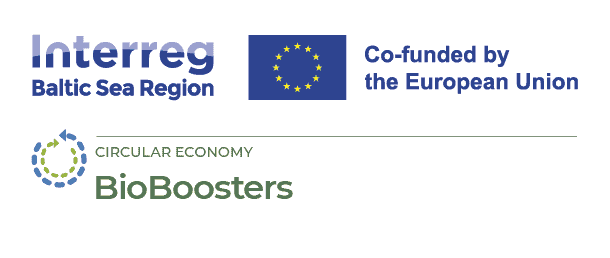
The story about AdFis Hackathon: Activating sustainability via innovation
30 June 2025
Making activated carbon production more energy-efficient and sustainable
In March 2025, we at WITENO GmbH had the pleasure of organizing a six-week BioBoosters Hackathon together with AdFiS products GmbH, Germany’s leading producer of activated carbon. The aim was to find innovative ways to make their highly energy-intensive production process more sustainable and future-proof.
What made this hackathon so unique was its strong technical focus. While the open call welcomed a wide range of applicants – including start-ups, SMEs and research teams – AdFiS ultimately opted exclusively for academic and research-based teams. The task was highly complex and required a solid scientific foundation, which these teams were best placed to provide.
From the outset, it was also clear that this wouldn’t be a classic start-up competition. AdFiS wasn’t looking for one winning pitch, but rather long-term collaborations with multiple teams. That mindset transformed the hackathon into a collaborative R&D accelerator rather than a conventional contest. Hosting the final event at a professional conference venue (Gut Gremmelin) proved to be a great choice. The focused environment allowed deeper mentoring sessions, meaningful dialogue, and high-quality networking. Compared to our first BioBoosters round, we noticed that more time was needed for technical discussions – an important lesson for future hackathons.
What is the impact of the BioBoosters Hackathon?
The hackathon far exceeded our expectations in terms of solution quality and future potential. Two winning teams were selected:
- LuMiB (Sweden–Italy) proposed using lignin-based nanomaterials to improve the structure and effectiveness of biochar, making it a more sustainable base for activated carbon.
- Bio4Act (University of Kassel, Germany) suggested using bio-oil and tar byproducts as natural binders in the pelletizing process, potentially reducing energy consumption and eliminating external chemicals.
AdFiS is now entering into pilot and feasibility studies with both teams – and they’ve told us that the hackathon gave them enough valuable input to shape their R&D for years to come.
For us as organizers, it was incredibly rewarding to see how well the BioBoosters model worked for a technically complex challenge like this one.
What kind of help did you get from the international partnership in organizing a BioBoosters Hackathon?
We received a great deal of support from our international BioBoosters partners throughout the entire process. All partners actively searched their networks for potential solution providers – which was particularly challenging given the highly technical and niche nature of the AdFiS challenge. Thanks to these joint efforts, we were able to reach candidates that we could not have found through our own networks alone.
The partnership was also instrumental in identifying international mentors. With their help, we brought in experts from different countries who significantly enriched the hackathon experience during the on-site mentoring sessions. Their outside perspectives and sectoral expertise added real value to the teams’ development processes.
Another major benefit of the partnership was the continuous exchange during the preparation phase. The many clarification and comprehension questions from our partners helped us refine and simplify the challenge description. That made it much easier to communicate the challenge to potential applicants and increased the relevance and quality of the submissions we received.
Compared to the first round, the collaboration had clearly matured. Everyone knew exactly what to do, and where their contribution would have the most impact. That clarity allowed us to focus our energy on finding the right experts, while the partnership took care of activating their respective networks.
Finally, the personal relationships we’ve built within the partnership played a big role. By now, we know and trust each other very well. That mutual respect and shared motivation to achieve the best possible results made the process smoother and more rewarding, especially during the intensive and sometimes difficult search for the right solution providers.
What lessons would you like to share with other Hackathon organizers?
One big takeaway: flexibility is everything.
- The mentoring sessions need to be adjusted to match the depth of the challenge – 30 minutes was not enough in some cases.
- Even though AdFiS is a relatively small company, they were the perfect challenge provider. Their openness, curiosity, and commitment were essential to the success of the process.
- And finally: trust the process. This kind of open innovation really works – especially when everyone involved shares a willingness to learn, collaborate, and explore new ground.
Will we see more BioBoosters Hackathons in your region after the project?
Definitely. Based on this great experience, we will continue using the BioBoosters format – both within new projects and as a dedicated service for interested stakeholders in bioeconomy.
We believe that this focused, single-challenge approach is a fantastic way to bring companies and innovators together and make real, impactful progress, especially when it comes to circularity, sustainability, and deep-tech solutions.
Interactive map showing pilot locations. Use the arrow keys to move the map view and the zoom controls to zoom in or out. Press the Tab key to navigate between markers. Press Enter or click a marker to view pilot project details.





